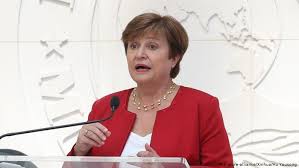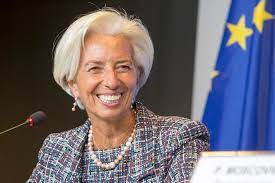The International Monetary Fund (IMF) has expressed some concerns that cryptocurrencies may become a major currency in Nigeria and other developing countries.
The Breton Woods institution in a report titled ‘Global Crypto Regulation Should be Comprehensive, Consistent, and Coordinated’ released on Thursday, stated that cryptocurrency had made it very difficult to protect the world financial system.
According to the IMF, emerging markets and developing economies such as Nigeria may face immediate and serious risks of currency substitution by crypto assets.
Noting that crypto assets are drastically changing the financial system it has been trying to protect over the past years, the Washignton D.C-based institution, however, promised to safeguard the stability of the international monetary and financial system.
The report partly reads: “Some emerging markets and developing economies face more immediate and acute risks of currency substitution through crypto assets, the so-called cryptoisation.
“Capital flow management measures will need to be fine-tuned in the face of cryptoisation. This is because applying established regulatory tools to manage capital flows may be more challenging when value is transmitted through new instruments, new channels, and new service providers that are not regulated entities.”
“Crypto-assets will soon pose systemic financial stability in some countries as policymakers struggle to monitor risks”
According to the IMF, crypto assets and associated products and services have grown rapidly in recent years as their inter linkages with the regulated financial system are rising.
It further clarified: “Policymakers struggle to monitor risks from this evolving sector, in which many activities are unregulated. In fact, we think these financial stability risks could soon become systemic in some countries.”
“While the nearly $2.5tn market capitalisation indicates significant economic value of the underlying technological innovations such as the blockchain, it might also reflect froth in an environment of stretched valuations”, it added.
In the report, IMF noted that identifying, monitoring, and management of crypto-related risks continues to defy regulators and firms, adding that in developing economies for instance, cryptoisation is threatening to replace domestic currency, and circumvent exchange restrictions and capital account management measures.
It stressed: “Such risks underscore why we now need comprehensive international standards that more fully address risks to the financial system from crypto assets, their associated ecosystem, and their related transactions, while allowing for an enabling environment for useful crypto asset products and applications.
“Importantly, many crypto service providers operate across borders, making the task for supervision and enforcement more difficult. Uncoordinated regulatory measures may facilitate potentially destabilising capital flows.”
According to the IMF, there is a need for a global regulatory framework that provides a level playing ground along the activity and risk spectrum just as crypto-asset service providers that deliver critical functions should be licensed or authorised.
Specifically, it listed these to include “storage, transfer, settlement, and custody of reserves and assets, among others, similar to existing rules for financial service providers.
“Licensing and authorisation criteria should be clearly articulated, the responsible authorities clearly designated, and coordination mechanisms among them well defined. Requirements should be tailored to the main use cases of crypto assets and stablecoins”, it reported.
It also advocated an urgent need for cross-border collaboration and cooperation to address technological, legal, regulatory, and supervisory challenges as “crypto assets are potentially changing the international monetary and financial system in profound ways.”




